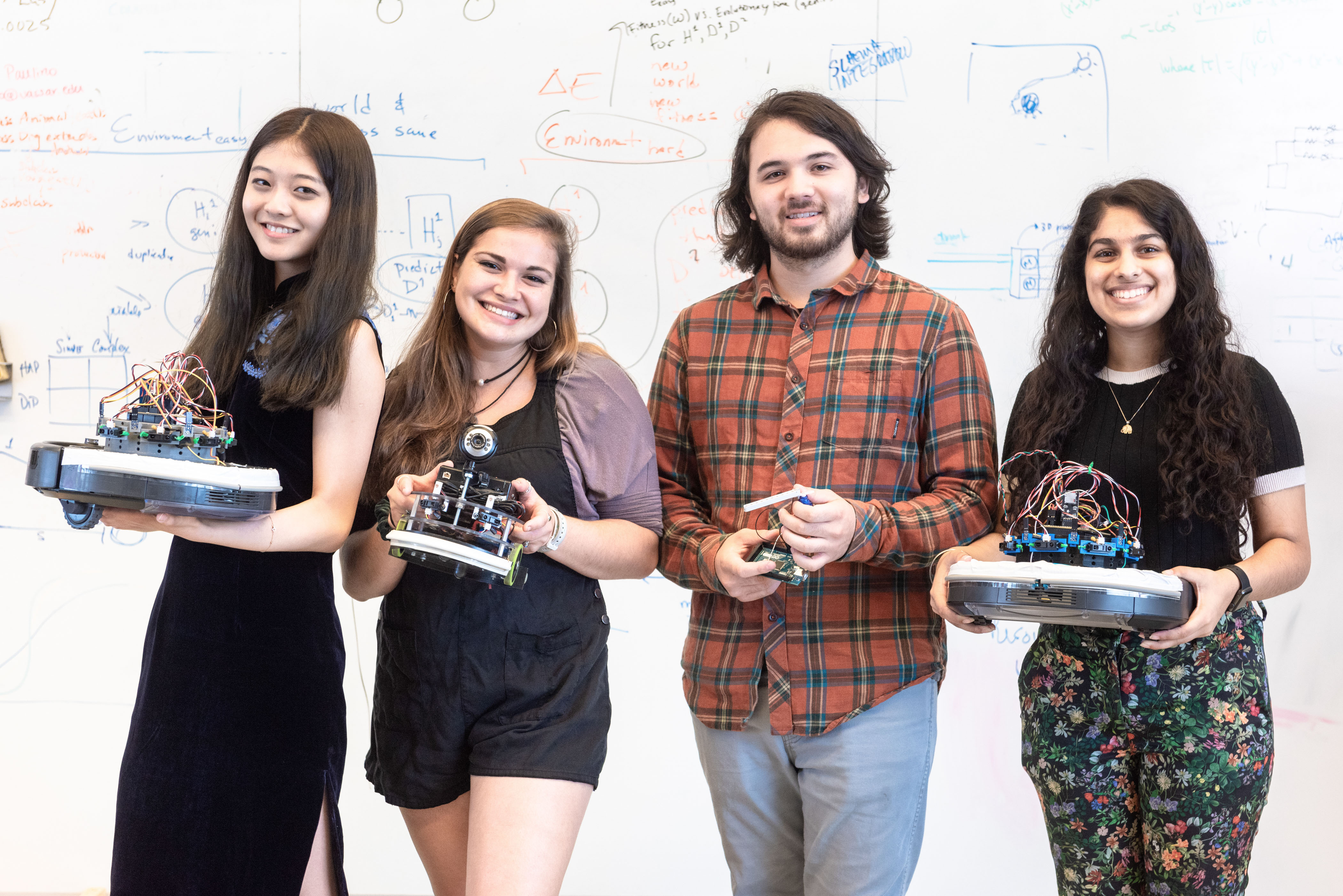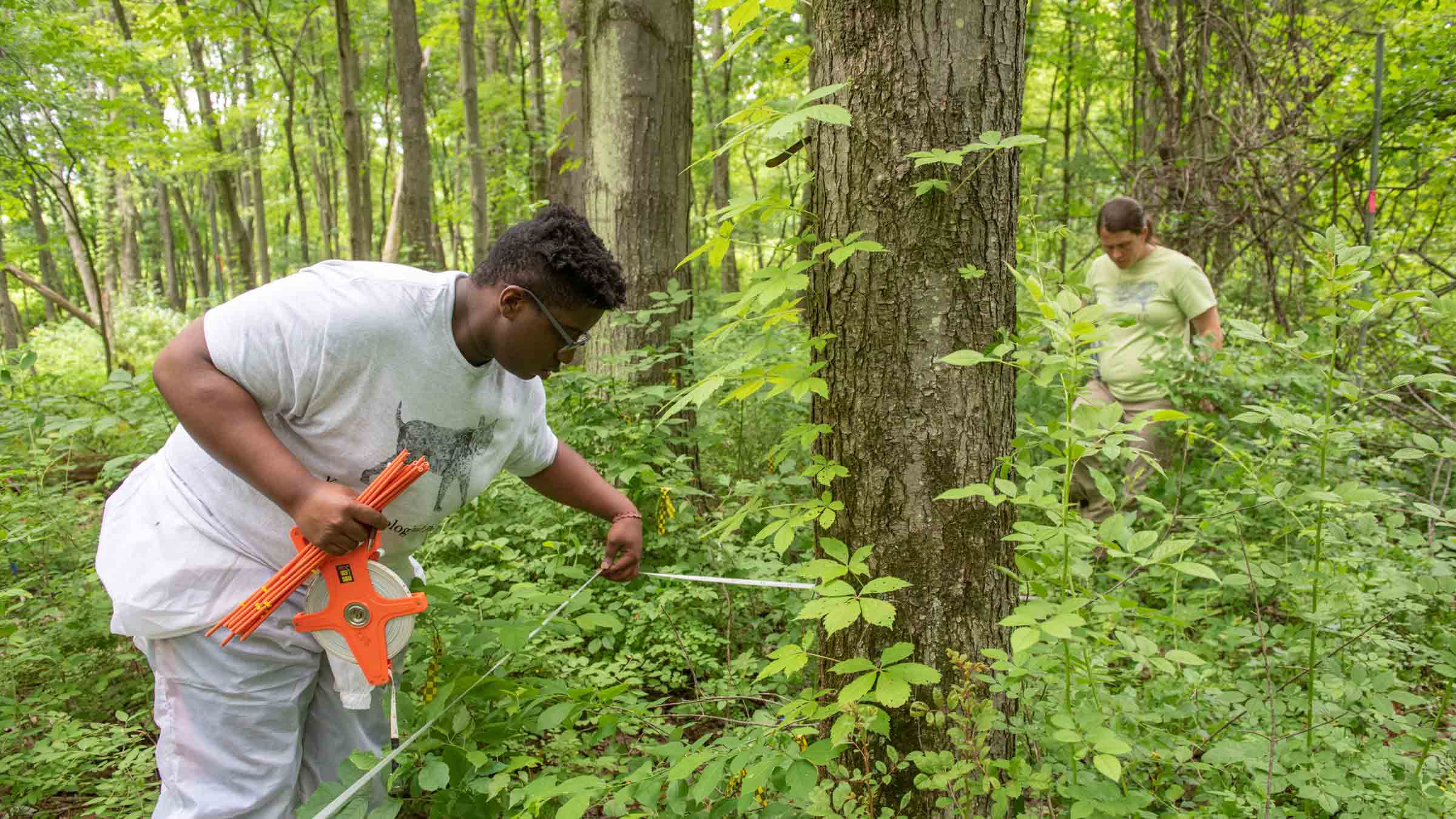Vassar has received a $1 million grant to transform its curriculum with the aim of attracting and retaining more students who are traditionally underrepresented in the sciences. Vassar was one of 33 colleges and universities selected this year for the Inclusive Excellence grants from Howard Hughes Medical Institute (HHMI).
Over the next five years, the college will use the funds to train faculty and develop a science curriculum that will enable “clusters” of students and faculty to engage in the comprehensive study of “Grand Challenges,” such as climate change and public health issues that have a global impact.
Chemistry Prof. Teresa Garrett, a member of the Vassar team that wrote the grant proposal, said the clusters will be structured in ways that make the study of science more inclusive. A Vassar study completed in 2017 showed that students of color, first-generation college students and others traditionally under-represented in the sciences often do not feel comfortable in science classes. “I know from the data we have that students from under-represented groups sitting in my chemistry class might not feel as included as others in that classroom,” Garrett said. “The next question I should be asking is, ‘What do I do about that?’”
Dean of the Faculty Jonathan Chenette said he is convinced that the plan Vassar has in place to use the funds from HHMI will enable the college to attain that goal. “It was apparent from the data we gathered that we have to create an environment that enables our incredibly talented student body to thrive across all curricula, but particularly in the STEM (Science, Technology, Engineering, Mathematics) fields,” Chenette said.
He noted that the pending changes in the science curriculum come at a time when Vassar is engaged in implementing other significant modifications to its course work and pedagogy. And he said the philosophy and values driving these changes are consistent with the college’s Engaged Pluralism Initiative, which is striving to make campus life more inclusive for all students, faculty and staff. “It’s an all-encompassing idea that has come together in various ways in the past few years,” Chenette said.

President Elizabeth Bradley called the new initiative groundbreaking. “Thanks to this generous grant from the Howard Hughes Medical Institute, Vassar will embark on an exciting and innovative approach to the teaching of science that will benefit the entire student body,” Bradley said. “This was an extremely competitive grant, and Vassar was one of the colleges selected thanks to the vision and expertise of the faculty members who wrote the application.”
Members of the grant-writing team were Garrett, Associate Prof. of Biology Jodi Schwarz, Education Prof. Christopher Bjork and Associate Prof. of Mathematics and Statistics Jan Cameron. Schwarz is serving as Program Director for the initiative. Over the past two years, 594 colleges and universities applied for the grant, and 140 were asked to submit full proposals. Fifty-seven grants were awarded, 24 last year and 33 this year.
HHMI President Erin O’Shea said the grants were awarded to institutions that had demonstrated they had the willingness and the vision to find ways to engage all students in science, regardless of their background. “This initiative is about encouraging colleges and universities to change the way they do business, to become institutions with significantly greater capacity for inclusion of all students, especially those from nontraditional backgrounds,” O’Shea said.
Vassar’s relationship with the Howard Hughes Medical Institute dates to the 1980s, when the Institute first announced its initiative to strengthen the national quality of undergraduate education and research in biology and related disciplines. In 2008, the college received a grant of $1.5 million for an ambitious portfolio of science education activities directed by Biology Prof. Nancy Pokrywka and Chemistry Prof. Miriam Rossi.
Vassar’s initiative will begin in the fall with a series of training sessions for faculty, facilitated by the National Alliance for Partnerships in Equity. The investigations of the “Grand Challenges” by the student-faculty “clusters” are expected to launch in the fall of 2019.
Read HHMI’s press release about these grants.
